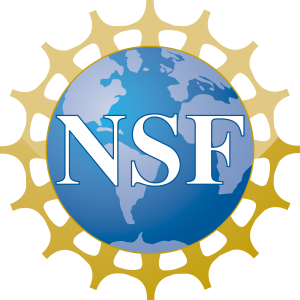 The following National Science Foundation (NSF) Disrupting Operations of Illicit Supply Networks (D-ISN) program has an upcoming deadline of July 28, 2021, and might be of interest to those in our computer science research community.
The following National Science Foundation (NSF) Disrupting Operations of Illicit Supply Networks (D-ISN) program has an upcoming deadline of July 28, 2021, and might be of interest to those in our computer science research community.
This solicitation supports fundamental research to enable transformative change in our ability to detect, disrupt and disable illicit supply networks that traffic in persons, and tangible and virtual goods. These transformations will require well-coordinated, multi-disciplinary approaches that complement long-standing law-enforcement, victim-centric, and trafficking domain-focused research efforts with fundamental, innovative, and high-risk research that draws from multiple domains of engineering, computer and information science, and the social, behavioral, and economic sciences.
Major goals of NSF’s D-ISN Solicitation include:
- Improve understanding of the operations of illicit supply networks and strengthen the ability to detect, disrupt, and dismantle them.
- Support research on the illicit supply networks that fuel the national opioid epidemic
- Enhance research communities that effectively integrate operational, computational, social, cultural and economic expertise to provide methods and strategies to combat this complex and elusive global security challenge.
- Catalyze game-changing technological innovations that can improve discovery and traceability of illicitly sourced product inputs.
- Provide research outcomes that inform U.S. national security, law enforcement and economic development needs and policies.
Proposals responding to this solicitation must be submitted to the Directorate for Engineering. Once received, however, the proposals will be managed by a cross-disciplinary team of NSF Program Directors.
In a similar space, the Computing Community Consortium (CCC) recently announced the release of the CCC / Code 8.7 Applying AI in the Fight Against Modern Slavery Workshop Report. This March 2020 workshop brought together over 50 members of the computing research community along with anti-slavery practitioners and survivors to lay out a research roadmap aimed at applying AI to the fight against human trafficking. The primary goal was to explore ways in which long-range research in artificial intelligence (AI) could be applied to the fight against human trafficking. Building on the kickoff Code 8.7 conference held at the headquarters of the United Nations in February 2019, the focus for this workshop was to link the ambitious goals outlined in the A 20-Year Community Roadmap for Artificial Intelligence Research in the US (AI Roadmap) to challenges vital in achieving the UN’s Sustainable Development Goal Target 8.7, the elimination of modern slavery. See the full report here.









